Aelicia “Chocolate” Watson’s home is as tidy as a fresh start. Her living room is a peaceful blend of comfortable furniture, vibrant colors, and the complete absence of clutter. Twin frames display photographs on the counter featuring recent pictures of Chocolate as a beaming bride next to Kevin, her groom.
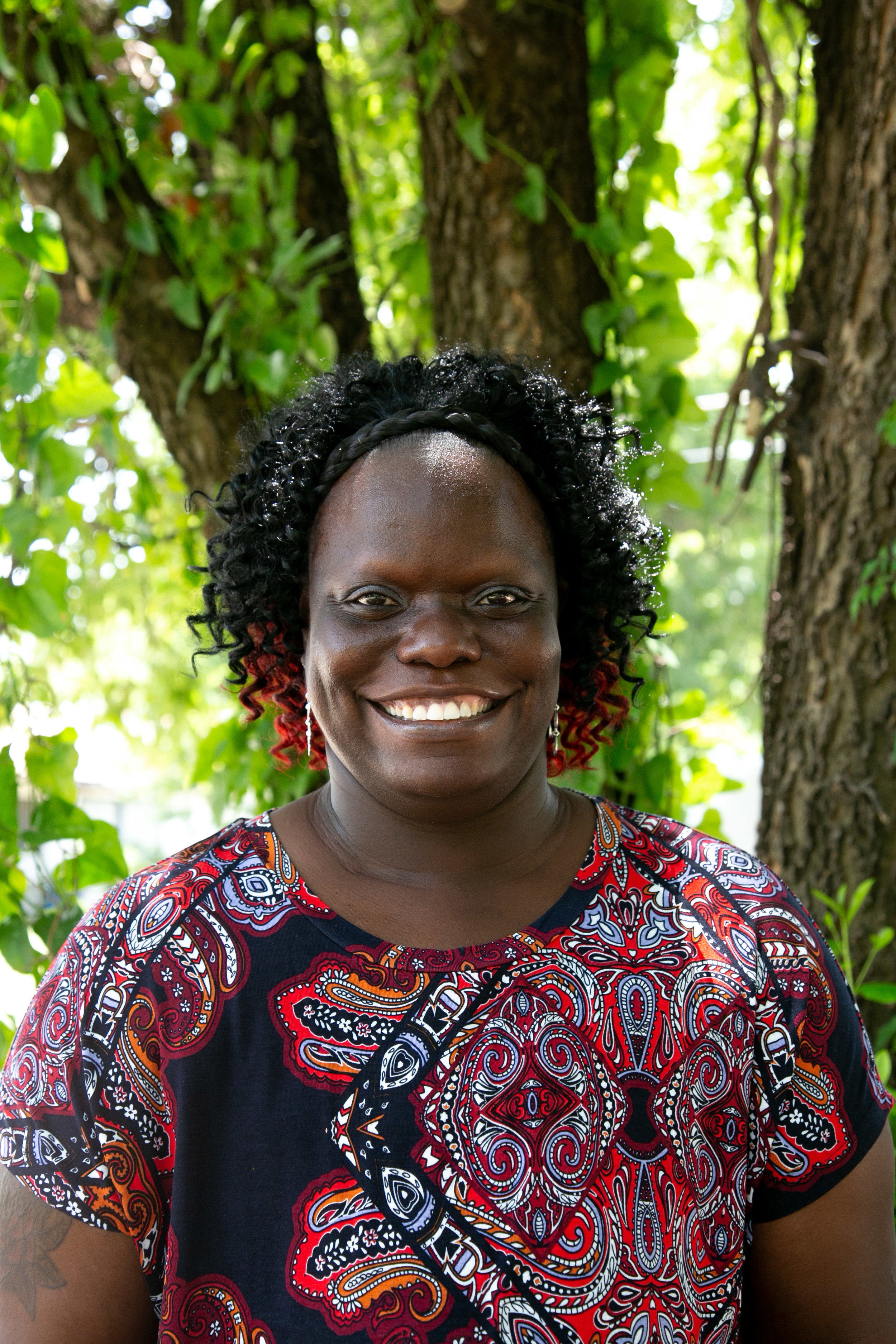
Chocolate greets us with a bold smile, tight hugs, and cold water bottles. “Once you’re here, you’re family,” she says. “Next time you come over, you can get your own.” We laugh and we begin to understand that this is Chocolate.
“She’s a perfect combination of compassion and tough love,” says Paula Caldwell, a board member for Chocolate’s organization, Redeemed Women. At Chocolate’s dining room table in the Bonton neighborhood of southern Dallas, we are sitting in the Redeemed Women headquarters.
Chocolate founded Redeemed Women in 2017 to serve her neighbors in Bonton. The mission statement of the organization is “Transforming women to lead independent lives by building relationships and addressing their spiritual, physical, and vocational needs.” But to truly understand the work and the mission of Redeemed Women, we first have to understand its founder.
“The story of Redeemed Women is actually me,” Chocolate says, and she slides her self-published autobiography, Anointed, across the table. The book recounts the incomprehensible terror she’s survived: the anguish of dire poverty and homelessness as a child, four days alone in a broken down car with her younger brother, the unspeakable violation of sexual abuse and rape by caretakers and family members, twice outliving a rare form of childhood bone cancer, becoming the mother of the premature baby at 14, battling breast cancer as an adult.
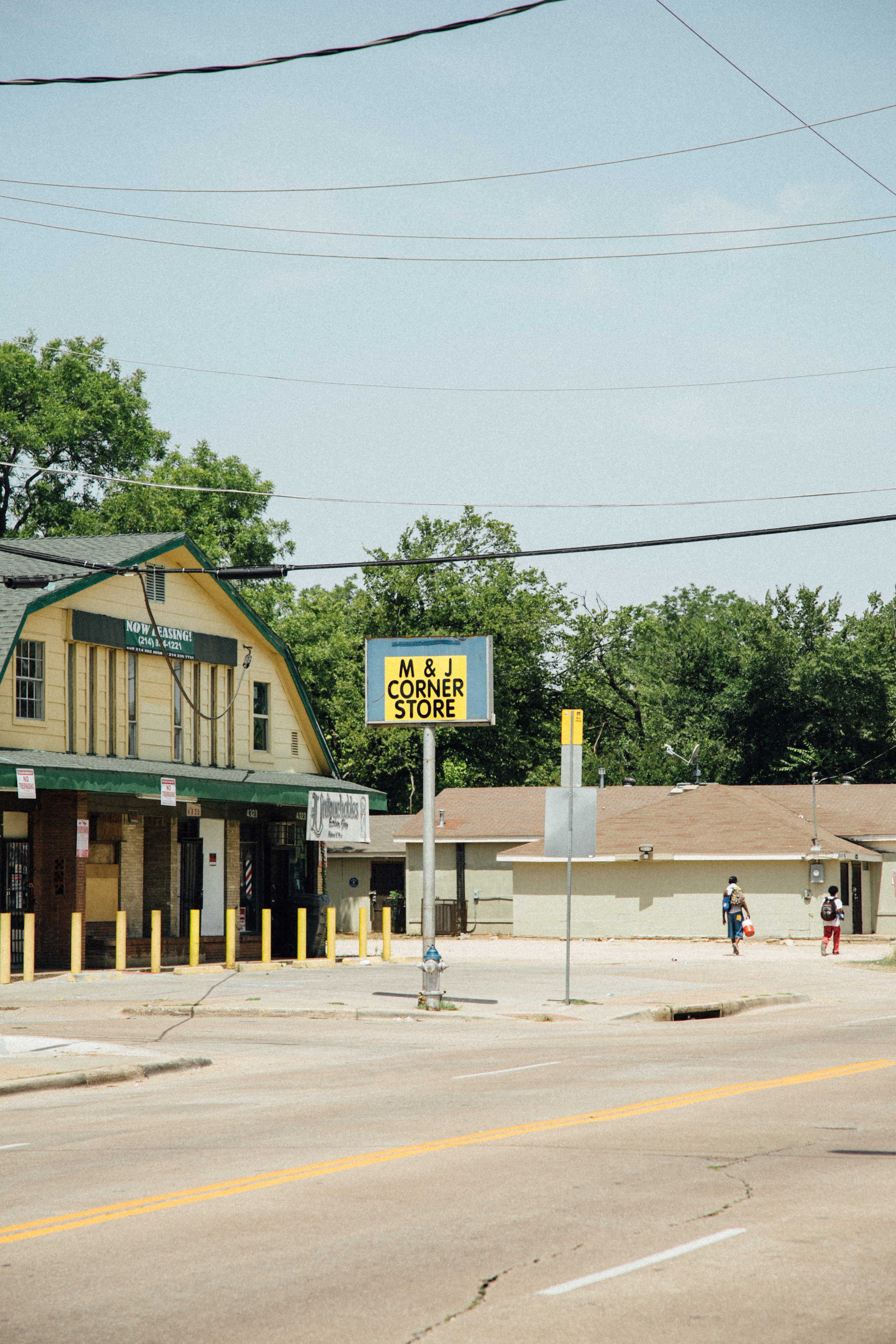
Hers is the type of story we expect to see on a movie screen, not in the bold smile of the woman sitting across the table from us. Chocolate’s past stands in stark contrast to her inviting, orderly living room where she hosts the women of her neighborhood every Tuesday morning for Bible study. She has created an organization that provides resources to women who are living in survival mode, just like she was. With the toughness of a survivor and her inherent compassion, she found the most obvious way to become what she calls an “urban missionary”: she walks out her door, introduces herself to her neighbors, and finds resources to meet their needs.
“Bonton is a food desert, job desert, transportation desert, childcare desert, laundromat desert, you name it,” Chocolate explains. Located in South Dallas on the Trinity River floodplain, Bonton’s history is plagued with segregation, economic isolation, and even racially motivating bombings. Like Chocolate, many of the women in her neighborhood have come from legacies of poverty, which Chocolate calls a “generational curse.” Chocolate serves women who come from backgrounds of abuse, single mothers who lack available childcare, and women who have–just like her–spent much of their lives surviving.
>
“Bonton is a food desert, job desert, transportation desert, childcare desert, laundromat desert, you name it.”
“They, like most mothers, want their children to be safe. They want to feed and clothe them, and they want them to be good people. They just don’t have a roadmap, example, or mentor to show them the way,” Chocolate says.
They do have Chocolate. One woman and one need at a time, she finds resources to answer the most pressing challenges her neighbors face.
For example, the nearest grocery store is over three miles away from Chocolate’s home. The distance may not seem daunting until Chocolate describes the journey many residents travel to get there, most of whom do not have cars.
“It’s a three and a half hour round trip bus ride,” she explains, after she challenged herself to take the journey her neighbors have to take every week. She describes it as “terrible,” and remembers stepping off the bus and sobbing.
According to Chocolate, one bus comes in and out of Bonton every 45 minutes. On its route to downtown Dallas, it drops grocery shoppers at a corner about a half mile from the grocery store, where they walk the rest of the way. The store itself, the only one in the area, hikes up its prices because residents have nowhere else to go. Most of the women Chocolate serves have to take their children along, and they can only purchase what they can carry for the long ride home. Frozen or cold food requires an insulated bag so that it doesn’t spoil in the heat.
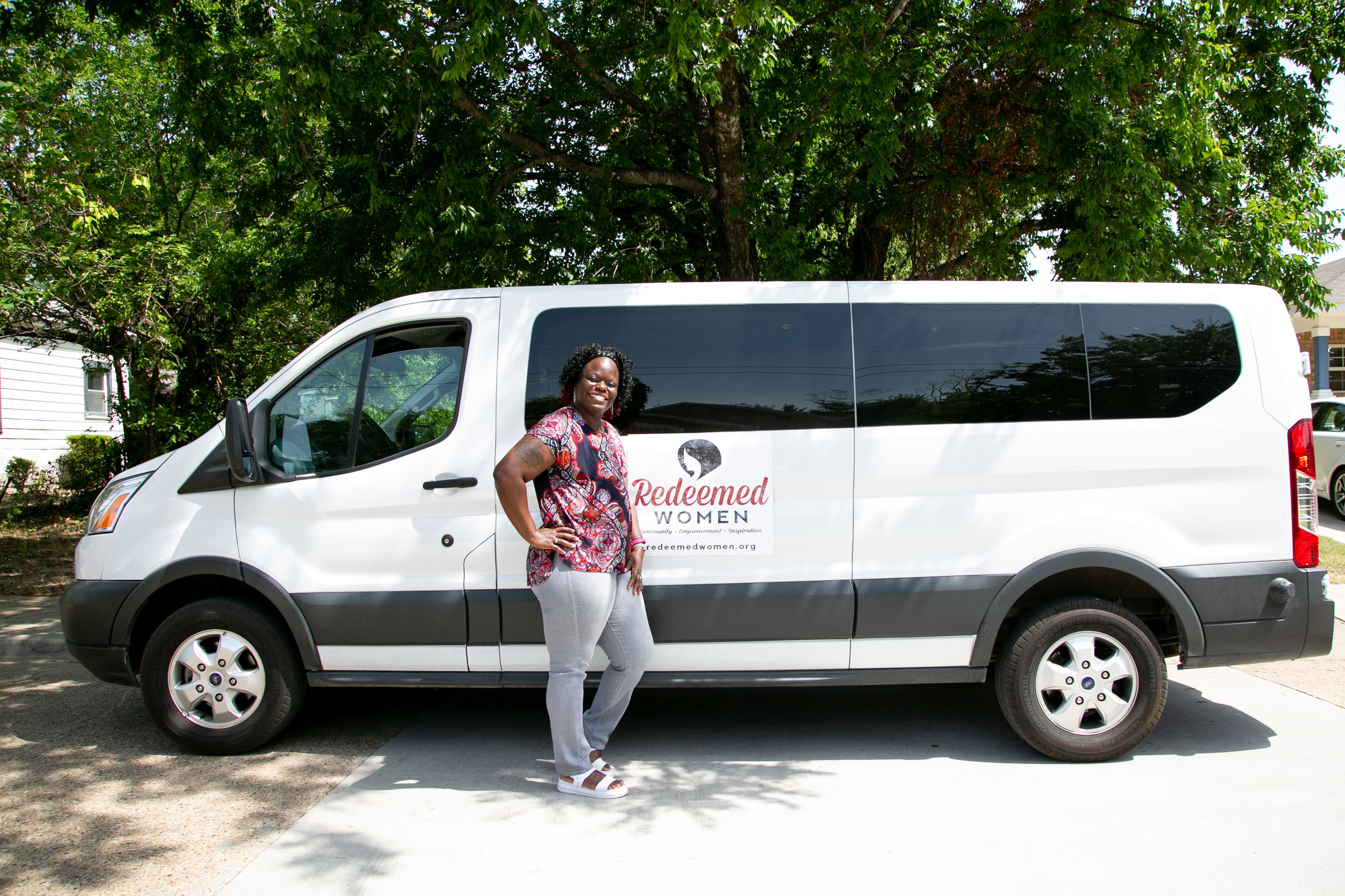
To make buying groceries more accessible, Chocolate provides “hot and cold” bags to the women of her neighborhood so that they can carry and preserve their groceries. She also provides rides to and from the grocery store in Redeemed Women’s 12-passenger white van, lovingly nicknamed “Vanna White.”
Many of the women purchase groceries with the assistance of food stamps, but food stamps do not cover paper products, cleaning supplies, diapers, or other staples. That’s why Chocolate maintains the “Closet of Hope” in a storage shed behind her home—it’s Redeemed Women’s supply closet to help the women of Bonton access basic home goods and hygienic products. She is quick to emphasize that she only gives them away for free once—after that, women can work in exchange for the products, volunteering with Redeemed Women or helping neighbors.
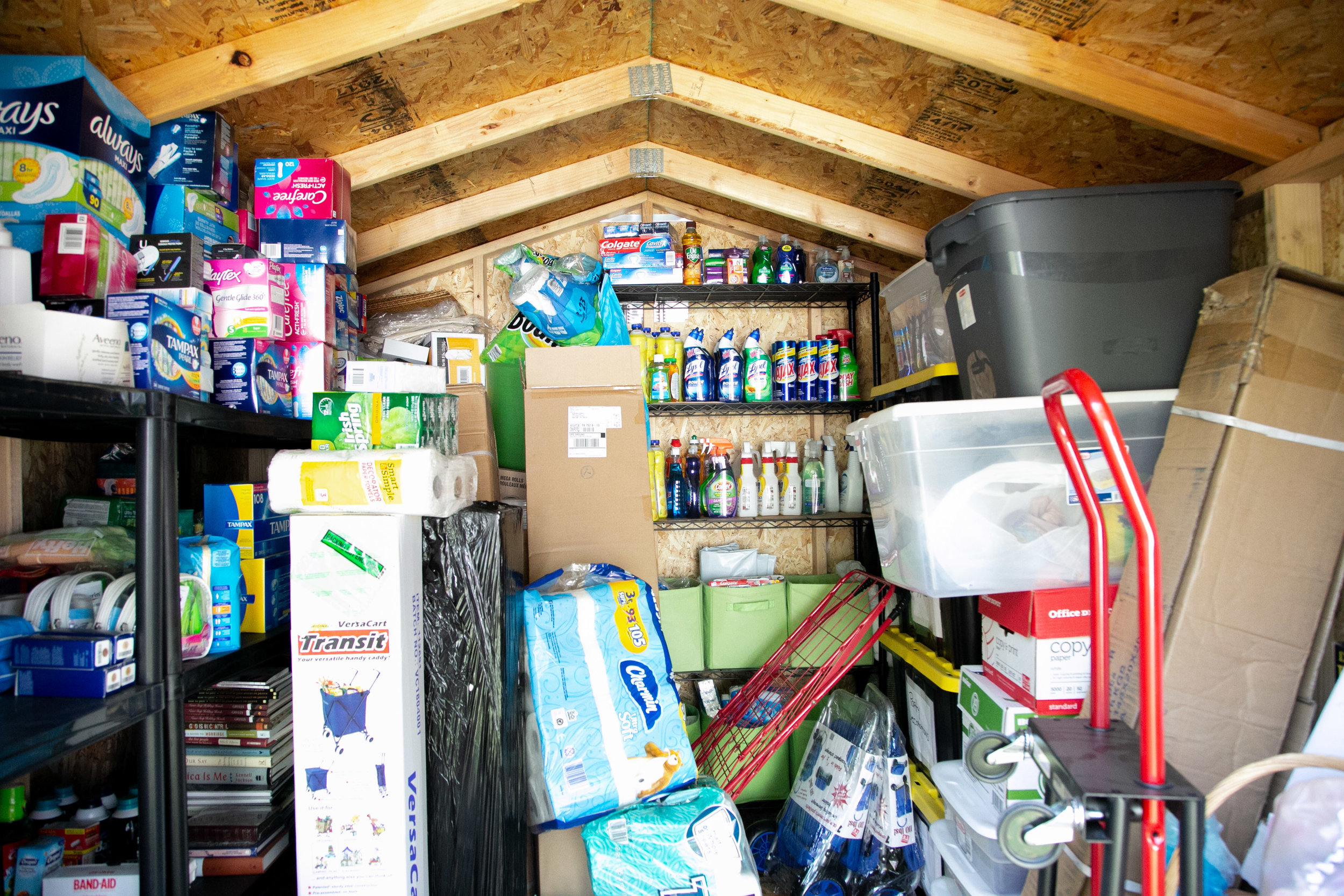
“I know firsthand how these ladies feel,” Chocolate says. “I know their fear. I know how to reach them. I must meet them where they are, meet needs, and earn their trust before hearts and minds can be changed.” Helping the women in her neighborhood in a meaningful way is slow and methodical work. Chocolate explains that many women she serves are reluctant to offer trust or reach out for help; they’ve too often felt abandoned, shamed, or taken advantage of. She builds their trust by creating “touchpoints” like the weekly Bible study in her home, quarterly events and brunches, and birthday baskets to celebrate the women.
She shares the story of a single mother who was hesitant to trust Chocolate. After months of building a relationship, Chocolate, relentless and patient, encouraged her to receive a certificate of completion from her parenting course, receive her GED, and interview for a job with a local child development center. She recalls mentoring another woman for three years, and finally driving her in Vanna White to take part in an outpatient drug rehabilitation program. It took multiple drives, long lines, and day-long waits at the rehabilitation center.
“This is what transformation looks like. This is what walking alongside people looks like. It’s hard. It’s nitty-gritty. But they need to know that somebody cares,” Chocolate says. Her book offers the same sentiment: “It requires sacrifice. Love always does.”
>
“It requires sacrifice. Love always does.”
Chocolate’s hardships are now carving a path for the women she serves. Because of her experiences, Chocolate is able to reach the women by saying, “You can do this because I did this.” She believes in them and shows them where to find the resources they need—then she encourages them to work as hard as she did to get them.
It is hard to grapple with how a woman who has survived homelessness, hunger, rape, cancer, abuse, and teen motherhood has strength and compassion left to share with her neighbors. Chocolate credits her grandmother for her strength; she pushed her to finish high school as a teen mother. Her grandmother told her she would be something, and, as Chocolate recalls fondly, she gave her two important pieces of advice: “Baby, you’ve got to learn how to forgive, and you’ve got to learn how to forgive.”
Chocolate’s grandmother nurtured her fierce faith in a loving God, the driving force behind her every action and the way she loves her neighbors. Chocolate also gives credit to her daughter, who has served as a reason to pull herself out of the generational cycle of poverty, to push ahead, and to find resources when no one else seemed to be offering them to her.
While they were once a survival method, Chocolate’s resourcefulness and drive now fuel her career accomplishments. “I’ve always had hustle in me. Always,” Chocolate says. “No one could have ever told me I would be the founder and executive director of a business,” she says of Redeemed Women. She might never have expected to self-publish a book, become a minister, a marriage officiant for her own business Get Married Dallas, a certified parenting class teacher, or a keynote speaker, but she’s done all of that, too.
“God sent positive people into my life where I could receive love and support,” Chocolate says.
In the same way she mentors her neighbors, she surrounds herself with people who help her to grow. One of her mentors once told her, “Never leave home without your notebook and your top three needs,” wisdom she has taken to heart and passed on to the women she helps.
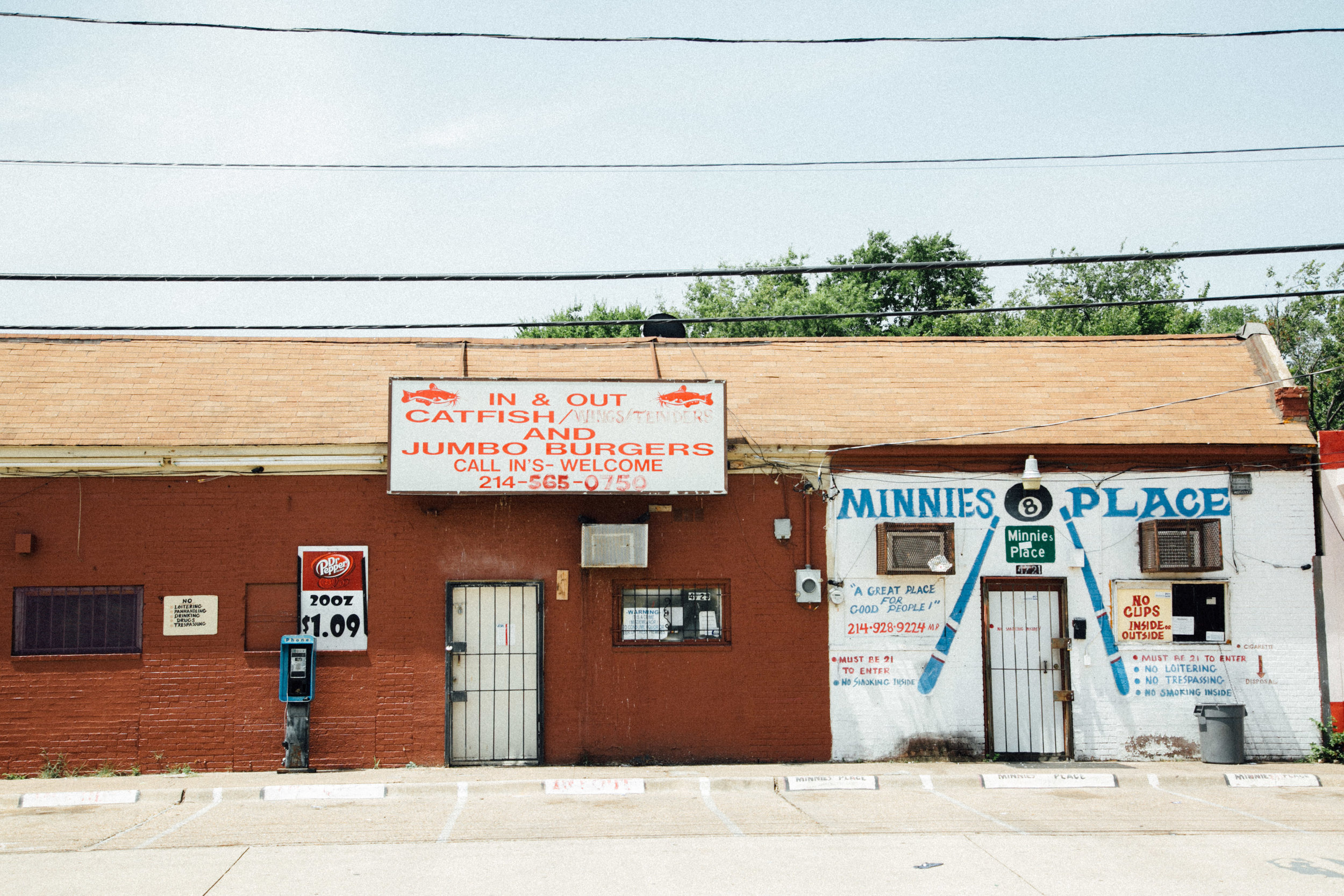
As a part of her interview, Chocolate takes us on a driving tour of the Bonton neighborhood in Vanna White. We pass by empty retail fronts and a non-functioning laundromat on the miles-long drive to the grocery store. Vanna White’s dashboard thermometer ticks to 111 degrees as we imagine carrying grocery bags to and from the bus stop.
From the backseat with my notebook in hand, I ask Chocolate the top three needs of Redeemed Women. She starts with the most important, the one at the heart of Redeemed Women’s mission: “Strong relationships. People who show up on a daily basis who actually care,” Chocolate answers. She echoes a similar mentality in her book. “People will not be changed by programs, friends. They will be changed by love.”
Next, she asks for awareness. “Bonton is overlooked,” she explains, and in a lot of ways the women are overlooked, too. “Every woman I disciple has lived in fear and shame most of her life. We have been living like this for generations, and yet no one has wanted to help us.” Without awareness, Redeemed Women will lack the financial and human resources needed to grow. Chocolate envisions expanding Redeemed Women’s services and resources to other neighborhoods as well.
Finally, she asks for space—a headquarters and workspace for Redeemed Women outside of her cozy living room. She’s already named it: The Well. “The Well is a much needed space we are trying to purchase within the community. Our hope is to create jobs.” She would like to hire a van driver who can drive women to the grocery store and other appointments. She imagines hiring women to operate a call center, or manufacture jewelry and sew the necessary “hot and cold” bags. If the women could find jobs within their own community, they might be able to take turns working shifts and exchanging childcare.
“The Well would offer a safe place to come and receive the benefits that you need. Right now I have partners lined up to teach everything we need, but we don’t have the space to do that,” Chocolate explains.
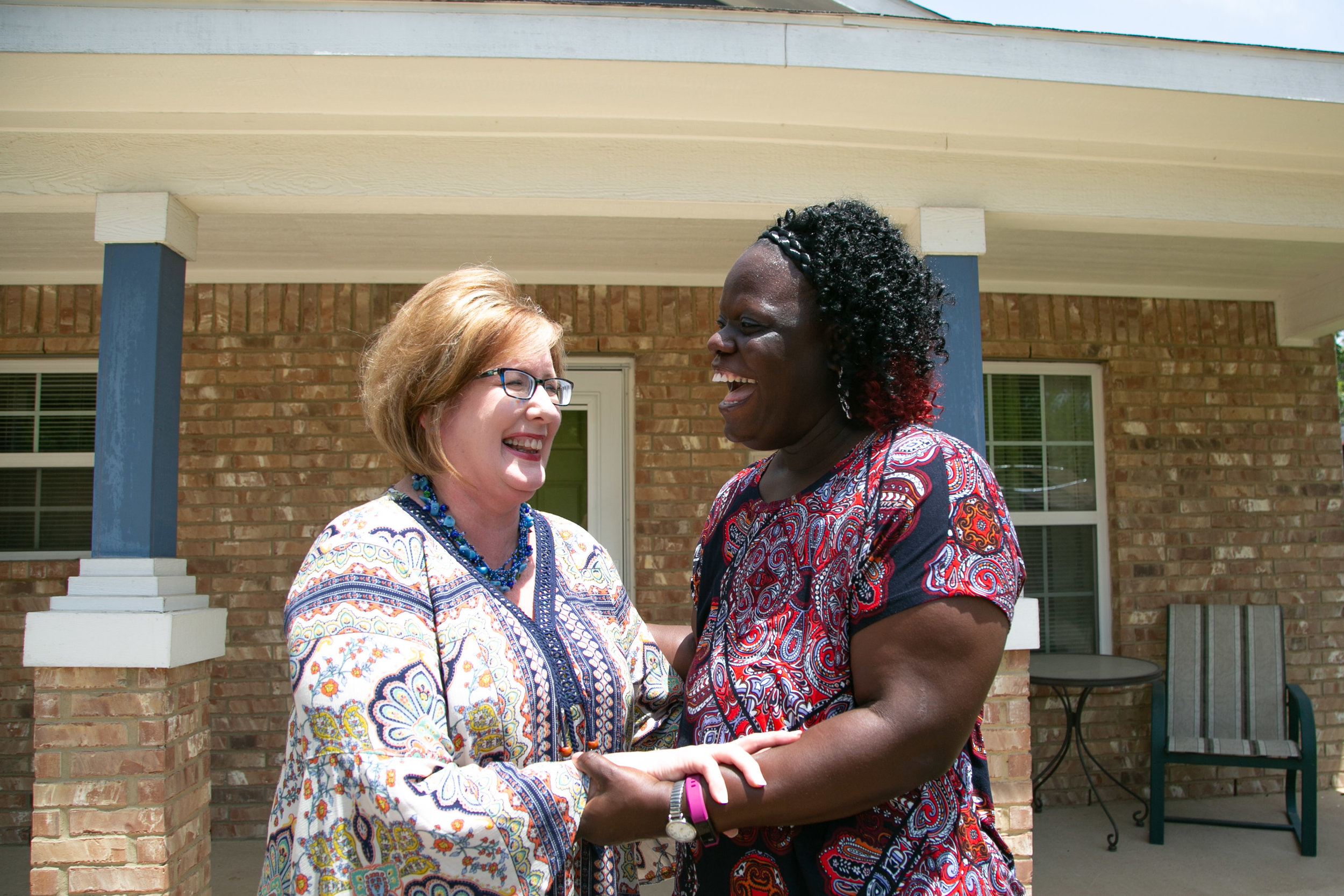
She may not have it yet, but she will. Chocolate has already accomplished more in her life than many of us can imagine. She describes what she’s most proud of, and compared to beating cancer three times, putting herself through school as a teen mother, and overcoming unthinkable adversity, the accomplishments she states seem simple: starting Redeemed Women, trusting God, her healthy marriage, and raising a daughter who is thriving in college.
It is clear that these points of pride are exactly what she wishes for the women she serves. By earning their trust, tracking down resources, and leading by example, she helps women seek employment, find support in healthy relationships, and pull their families out of generational cycles of addiction, abuse, or poverty. Chocolate Watson may have been the original “Redeemed Woman,” but if she has anything to do it, she will not be the last.
“The women I serve are not just my neighbors; they are yours, too. They need healing and restoration. They need their dignity restored. They need Jesus. They need you.”
For volunteer opportunities or to make a donation to Redeemed Women, visit the website. You can also follow Redeemed Women on Instagram and Facebook.
If you know someone who is Doing Good in Dallas, we’d love to hear about it! Share their story with us.
Story by Liz Navarro. Photos by Hunter Lacey.